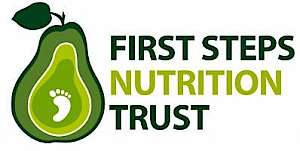During early childhood, nutrient-rich diets are needed to support growth and development. Meat can be an important source of iron for children, as the iron found in meat and fish is easily absorbed by the body. It is also rich in protein, zinc and vitamin A.
Processed meat has been subject to techniques such as smoking, curing, salting or adding preservatives. Processed meat does not provide the nutritional benefits of minimally processed meat and it is not recommended in the diets of young children.
What are the nutritional concerns of processed meat for babies and young children?
In the UK, processed meat contributes to nearly 6% of the total dietary energy intake of children between 18 months and 4 years of age (that’s roughly 24g per day). This includes sausages, bacon, ham, deli meats such as salami, pâtés, canned meat such as corned beef and lunch meats.
While average intakes are low, the consumption of processed meat among young children is of particular concern due to its high salt content. Children aged 1 to 3 years should, on average, aim to have no more than 2g of salt per day, rising to 3g per day for children aged 4 to 6 years. This is because their kidneys are not fully developed and cannot process it, and diets high in salt can alter the development of taste preferences towards more salty flavours and can lead to high blood pressure later in life.
Public health guidance suggests that babies should avoid salty foods, including processed meat, and parents and carers should consider strategies to reduce consumption of foods that are high in salt among children aged 1-5.
How can processed meat be reduced in the diets of babies and young children?
Children can be offered minimally processed meats in place of processed meat, although it may be that minimally processed meats are more expensive than processed and ultra-processed options. Cheaper sources of protein and iron include; beans, pulses, fish, eggs, tofu, soy mince and pulse-based foods (like hummus).
First Steps Nutrition Trust have put together Eating Well Guides to show how the nutritional requirements of young children can be met, including example recipes. The guides give examples of how minimally processed meat may be prepared in an age-appropriate manner for young children.
The Eating Well Guides are free and downloadable from here. They include a vegan guide to support parents or caregivers of children following vegetarian, vegan and plant-based diets.

